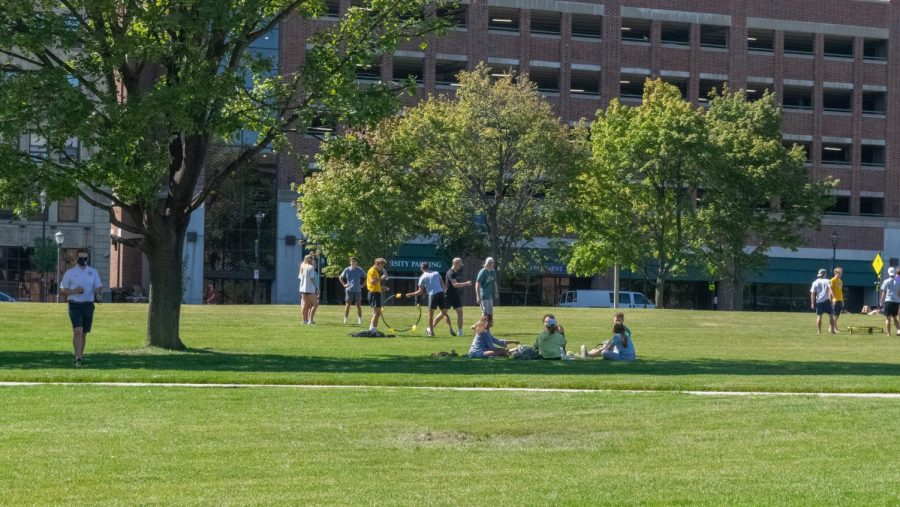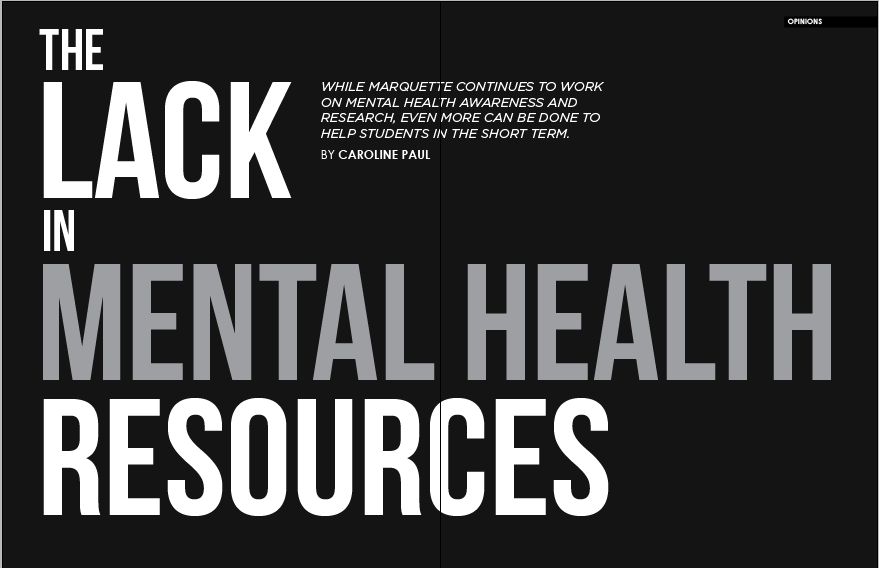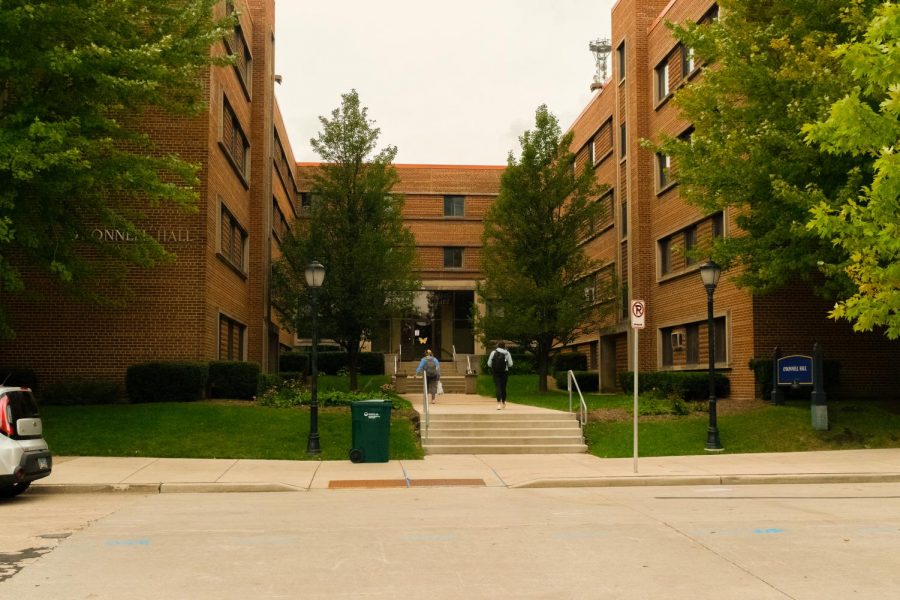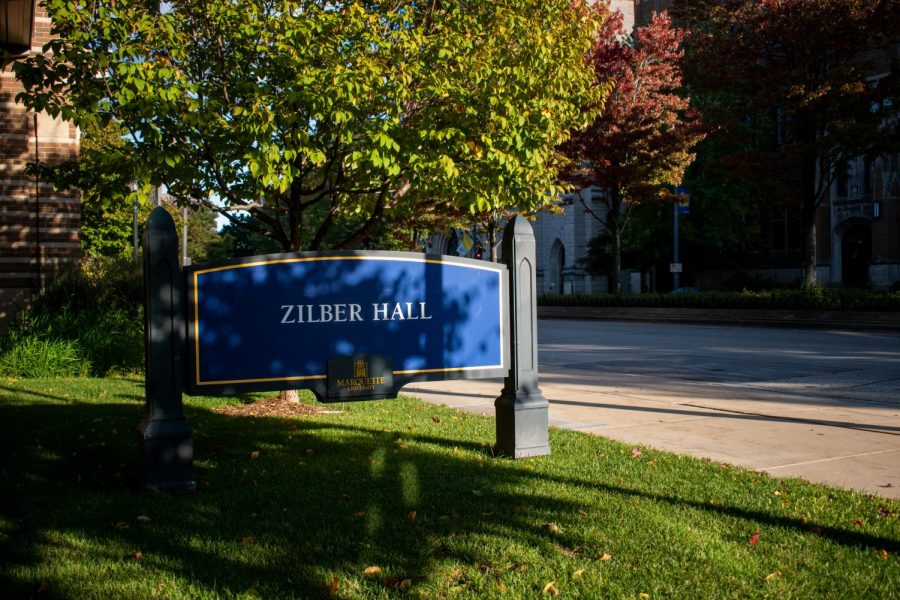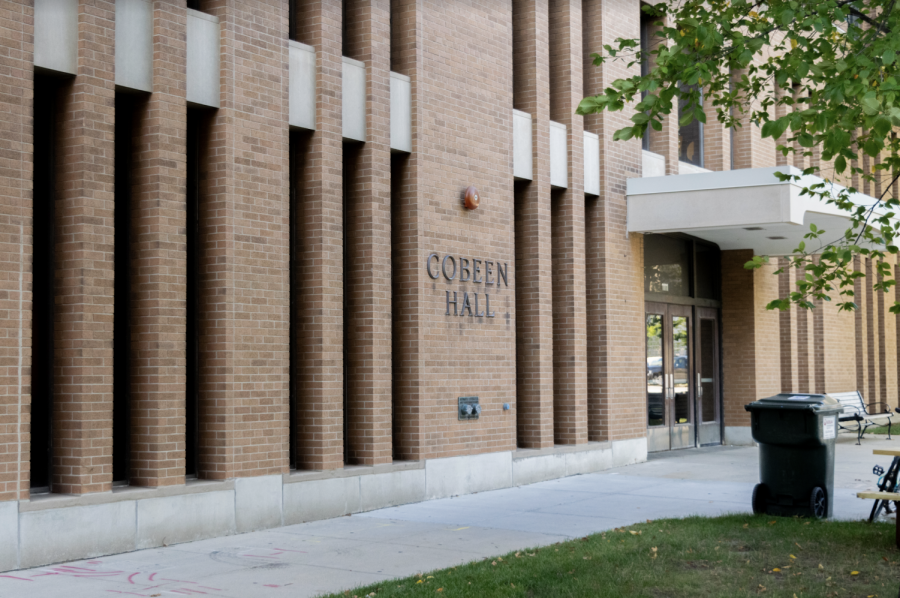With both Schroeder Hall and Cobeen Hall having gone into quarantine, nearly 250 reported positive COVID-19 cases on campus and insufficient COVID-19 testing and protocol, Marquette University must make a decision of how the university will move forward this semester while prioritizing the community’s safety and well-being.
Christopher Stolarski, university spokesperson, said in an email that the university is consulting with the Milwaukee Health Department and medical experts on Marquette’s board of trustees while assessing the university’s COVID-19 status.
On the COVID-19 Frequently Asked Questions page, the university also said it has five gating criteria that were developed in consultation with the Medical College of Wisconsin to determine when and how to reassess our current state with COVID-19.
This criteria includes test result timing, the percentage of positive tests, available quarantine or isolation spaces, access to personal protective equipment and the percentage of contacts reached within a 24-hour period when a positive case is confirmed.
Each criteria is graded as green, yellow or red on the COVID-19 Dashboard. Currently all areas are green except the percentage of positive tests on campus, which is labeled as red, meaning that more than 10% of tested cases are positive.
This is most likely understating the number of positive COVID-19 cases on campus because these reported cases are only ones that have been tested by Marquette and contacted Marquette labs. Additionally, the university doesn’t require students, faculty or staff to report tests if they are taken off campus.
Moreover, testing on campus is an issue, as the Medical Clinic has limited hours of operation during the week and is closed on weekends. This can create stress and confusion for students, especially those without access to transportation to get tested off campus, as they have to consider how to keep themselves and others safe while the Medical Clinic is closed.
The COVID-19 Dashboard is also only updated during the afternoon on weekdays, which doesn’t provide up to date information about COVID-19 testing or cases.
Students without private health insurance may also rely on the Medical Center for COVID-19 resources, like testing.
Additionally, if students report that they think they may have COVID-19, but do not show symptoms or don’t believe they had direct contact with someone who tested positive, the Medical Clinic has refused to test them.
In contrast, the Wisconsin National Guard is conducting free COVID-19 tests for anyone, regardless of whether they display symptoms or not.
This could put students not expressing COVID-19 symptoms at risk for spreading it to other people.
Additionally, students could lie that they have symptoms or that they came in contact with someone in order to get tested at Marquette.
Contact tracing for COVID-19 cases on campus is also an issue because it only accounts for students who have been tested through Marquette.
Stolarski said in an email that Marquette students who live on and off campus as well as faculty and staff who have gotten tested through Marquette are included in contact tracing. This means that students who have gotten tested off campus are not included in contact tracing.
“Contact tracing to identify close contacts of positive cases is conducted with these individuals, as well as with those who self-disclosure a positive test result,” Stolarski said. “This outreach is done in collaboration with the Milwaukee Health Department or other health departments.”
Because students, faculty and staff can voluntarily disclose if they are self-isolating or self-quarantining, this may skew the contact tracing results.
The university must protect everyone’s health and well-being by sharing up to date COVID-19 information and developing a plan that keeps people safe.
With COVID-19 testing and contact tracing issues, the university needs to prioritize the health and well-being of the Marquette community, which can begin with determining a date to make a decision of what the rest of the semester will look like.
Editorial topics by the Marquette Wire are decided at weekly meetings between members of the executive board. The editorial is crafted with leadership by the executive opinions editor. The executive board consists of the executive director of the Wire, managing editor of the Marquette Tribune, managing editor of the Marquette Journal, general manager of MUTV, general manager of MUR and nine additional top editors across the organization.



